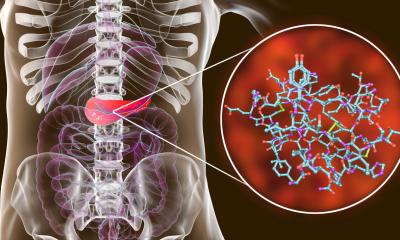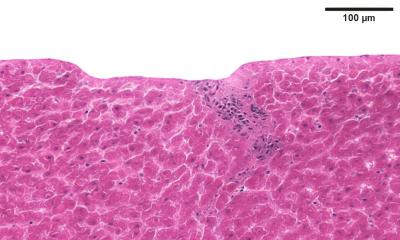News • Biology of Ageing
Road map to a longer life
In old age a variety of cellular processes decline and the risk to develop age-related diseases such as Alzheimer’s, Parkinson’s or Diabetes increases dramatically. But does ageing affect all organs and tissues in the body in the same way?
And should drugs that are developed to improve health in old age have the same effect on every organ? Now scientists from the Max Planck Institute for Biology of Ageing in Cologne have shown in flies that tissues respond very differently to reduced insulin signalling, which is known to extend lifespan in many organisms, from flies to mice, and possibly people. Importantly, those different responses can lead to extensions in lifespan themselves.
Scientists have known for many years that lowered activity of the insulin signalling network can extend lifespan and improve health during ageing, but it is still not understood how. The insulin signalling network responds to nutrient availability and stress levels and regulates development, growth, reproduction and lifespan. To understand how different tissues and organs respond, researchers in the team of Linda Partridge, director at the Max Planck Institute for Biology of Ageing and the UCL Institute of Healthy Ageing in London, analysed which proteins are produced in the brain, muscle, gut and fat body of fruit flies when insulin signalling is reduced. With this they generated a proteomic map of insulin signalling.
Each tissue responds differently
“We mapped out which proteins changed in which tissues when insulin signalling is reduced and could see that each tissue in the fly responds differently. There were only two proteins out of 6000 we analysed, which were regulated in all tissues - all others were to some degree tissue-specific”, explains Luke Tain, lead author of the study. “For example, if we reduce systemic insulin signalling, the gut responds by producing proteins for ensuring protein quality control.” This response of the gut can lead to an extension in lifespan itself: even without lowered activity of the insulin network, an increasing protein quality control only in the gut was sufficient to prolong lifespan in flies. However, the same treatment in the fat of the fly had no effect on its lifespan.
Tissue-targeted pharmacological agents
Our study opens up new possibilities for development of preventive medicine for diseases associated with ageing
Luke Tain
These results show how complex the response of different organs to interventions that improve health during ageing can be. “Our study opens up new possibilities for development of preventive medicine for diseases associated with ageing. In the future we could target a specific tissue with a drug, to the benefit of the whole organism. This would reduce the risk of unwanted side effects and alleviate a lot of the suffering in patients and the aged”, says Tain.
Source: Max-Planck-Institut für Biologie des Alterns
09.10.2017











